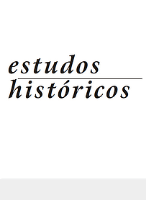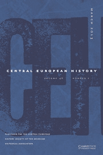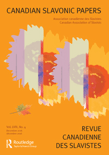
CENTRAL ASIATIC JOURNAL
Scope & Guideline
Advancing Scholarship in Central Asian Studies
Introduction
Aims and Scopes
- Linguistic Studies:
The journal publishes research on various Central Asian languages, including studies on etymology, dialects, translations, and script development, reflecting the linguistic diversity and historical evolution of the region. - Cultural and Historical Analysis:
It aims to explore the cultural practices, historical narratives, and social transformations within Central Asia, contributing to the understanding of the complex identities and traditions of the peoples in this area. - Political and Social Dynamics:
The journal examines the political strategies and identity formation among various ethnic groups in Central Asia, addressing issues related to governance, state formation, and inter-ethnic relations. - Interdisciplinary Approaches:
By integrating perspectives from anthropology, history, linguistics, and cultural studies, the journal fosters a multidisciplinary approach to understanding Central Asian societies. - Textual and Manuscript Studies:
The journal emphasizes the importance of textual analysis and manuscript studies, particularly those related to Mongolian law manuscripts and historical documents, to preserve and interpret Central Asian heritage.
Trending and Emerging
- Digital Humanities and Textology:
There is a growing trend towards digital humanities methodologies, particularly in the analysis of historical texts and manuscripts, which allows for new interpretations and accessibility of Central Asian heritage. - Inter-Ethnic Relations and Identity Politics:
Recent articles increasingly focus on the dynamics of identity formation and political strategies among various ethnic groups, reflecting the contemporary socio-political landscape of Central Asia. - Environmental and Economic Studies:
Emerging themes include the exploration of environmental issues and economic structures in Central Asia, particularly how these factors influence social stability and cultural practices. - Contemporary Cultural Studies:
The journal is seeing an uptick in research addressing contemporary cultural phenomena, such as the role of religion and ethnicity in modern Mongolian societies, indicating a shift towards current sociocultural dynamics. - Revisiting Historical Events with New Perspectives:
Recent publications show a trend towards reinterpreting historical events, such as the Mongolian conquests and their implications, using new methodologies and interdisciplinary approaches.
Declining or Waning
- Traditional Historical Narratives:
There appears to be a reduced emphasis on conventional historical narratives, focusing instead on more nuanced and interdisciplinary approaches to history that consider multiple perspectives and complexities. - Art and Material Culture:
Research related to the art and material culture of Central Asia has seen a decline, indicating a potential shift away from purely aesthetic studies toward more integrative cultural studies. - Colonial and Imperial Studies:
The journal has published fewer articles centered around colonial and imperial histories, suggesting a waning interest in these themes as scholars increasingly focus on contemporary issues and local perspectives. - Narrowly Focused Ethnographic Studies:
There seems to be a decrease in narrowly focused ethnographic studies that do not connect to broader socio-political themes, as the journal seeks to engage with more comprehensive and interdisciplinary analyses.
Similar Journals

Acta Baltico-Slavica
Fostering Inclusivity in Historical and Linguistic NarrativesActa Baltico-Slavica, an esteemed academic journal published by the Polish Academy of Sciences, Institute of Slavic Studies, serves as a vital platform for the exploration of Slavic cultures, languages, and historical narratives. Since its transition to Open Access in 2014, the journal has fostered inclusivity and accessibility, allowing researchers, professionals, and students to engage with cutting-edge scholarship in the fields of History, Linguistics and Language, and Literature and Literary Theory. With a commendable impact as indicated by its category quartile rankings (Q2 in History and Literature, Q3 in Linguistics), and Scopus rankings reflecting its significance within the academic community, Acta Baltico-Slavica not only contributes to the rich tapestry of scholarship surrounding the Baltic and Slavic regions but also encourages interdisciplinary dialogue. The journal’s commitment to advancing knowledge across its fields of study makes it a prominent destination for scholarly discourse and research inquiry.

Estudos Historicos
Championing High-Quality Research in History and Literature.Estudos Historicos, an esteemed academic journal published by FUNDACAO GETULIO VARGAS-FGV, is a pivotal platform for scholars in the fields of History, Cultural Studies, and Literature. With a focus on contemporary historical discourse and interdisciplinary approaches, this Open Access journal has been fostering scholarly dialogue since 2009, ensuring that vital research is accessible to a global audience. Based in Brazil, it holds impressive rankings, notably within the top tier of the Scopus database, where it is positioned in the 88th percentile for Literature and Literary Theory and the 75th percentile for History. The journal also boasts a Q1 categorization in Literature and Literary Theory, reflecting its commitment to high-quality scholarship. With its comprehensive scope, Estudos Historicos plays a crucial role in shaping the understanding of historical contexts and cultural narratives, appealing to researchers, professionals, and students alike who seek to explore the intersections of history, society, and literature.

JOURNAL OF ASIAN HISTORY
Pioneering Research in Asian Historical StudiesJOURNAL OF ASIAN HISTORY, published by VERLAG OTTO HARRASSOWITZ, stands as a significant academic platform dedicated to the exploration of Asia's rich historical tapestry. With an ISSN of 0021-910X and spanning multiple fields including Cultural Studies and History, this journal offers valuable insights for researchers, professionals, and students alike. Notably ranked in 2023 within the Q2 category in History and showcasing a diverse range of scholarly contributions, it is pivotal for advancing knowledge within Asian historical contexts. Though not open access, the journal facilitates critical discourse through comprehensive articles that deepen the understanding of Asia's complex socio-political landscape. With its operational presence in Germany, the journal continues to uphold academic rigor and contribute to the global scholarship on Asian history.

LATOMUS
Fostering Critical Dialogues in the HumanitiesLATOMUS is a distinguished academic journal published by Peeters in Belgium, offering a rich platform for scholarly discourse in the fields of Classics, Archaeology, History, Literature, and Linguistics. With the ISSN 0023-8856 and E-ISSN 2294-4427, it has established itself as an essential resource for researchers and professionals seeking to contribute to and engage with critical debates within these disciplines. While not an Open Access journal, LATOMUS is recognized for its robust impact in the academic community, achieving Q2 and Q3 rankings across various categories, including Classics and Archaeology, according to the latest 2023 evaluations. The journal publishes articles that span a range of topics relevant to antiquity and its influences, making it a vital resource for those exploring historical narratives and linguistic developments. As a publication dedicated to advancing scholarly knowledge since its inception in 1971, LATOMUS continues to serve as a cornerstone of academic inquiry within the humanities, promoting intellectual engagement and disseminating high-quality research in its converged years from 1971 to 1974, 1980, and from 2002 to the present.

CENTRAL EUROPEAN HISTORY
Connecting Past and Present in Central European HistoriographyCENTRAL EUROPEAN HISTORY is a distinguished academic journal published by Cambridge University Press, dedicated to the exploration and analysis of historical developments in Central Europe. With its ISSN 0008-9389 and E-ISSN 1569-1616, this journal has been a cornerstone in historical scholarship since its inception in 1968, catering to a global audience through its rigorous research articles and interdisciplinary approach. Recognized in the Q2 category in History in 2023, it aims to bridge gaps in Central European historiography and foster a deeper understanding of the region's complex past. The journal's commitment to publishing high-quality research makes it an invaluable resource for historians, researchers, and students alike. Although it does not offer Open Access, CENTRAL EUROPEAN HISTORY remains a vital publication in the field, addressing themes and debates that resonate with contemporary academic discourses. With a rich archive spanning over five decades, it continues to influence scholarship and promote informed discussions around Central European historical narratives.

New Perspectives
Fostering fresh insights in contemporary political challenges.New Perspectives is a pivotal academic journal published by SAGE Publications Inc, dedicated to advancing the fields of Political Science and International Relations. With a focus on innovative research and critical analysis, it has established a notable presence since its inception in 2015, currently holding a Q3 ranking in its category for 2023. Based in the Czech Republic, New Perspectives has a robust Scopus rank of #292 out of 706, placing it in the 58th percentile among social science journals. This underscores its significance in fostering scholarly dialogue and presenting fresh ideas in a rapidly evolving global landscape. While not open access, the journal attracts a diverse readership, including researchers, professionals, and students who are keen on exploring emerging trends and insights in political theory and international discourse. The journal’s commitment to high-quality scholarship makes it an essential resource for those aiming to contribute to and engage with contemporary political challenges.

Slovenska Archeologia
Fostering excellence in archaeological research and discourse.Slovenska Archeologia is a prominent journal published by the Slovak Academy of Sciences, Institute of Archaeology, dedicated to advancing the field of archaeology through rigorous scholarly research and insightful scholarship. With an ISSN of 1335-0102 and an E-ISSN of 2585-9145, this journal has been a vital platform for archaeologists and academics since its inception, converging its insightful publications from the years 2017 to 2023. Awarded a Q2 ranking in the field of archaeology across both arts and humanities categories, it holds a respectable position in the Scopus rankings, recognizing its contributions to the discipline. Based in Slovakia, the journal is an essential resource for professionals, researchers, and students interested in archaeological findings and methodologies. While it does not currently offer Open Access options, its commitment to promoting high-quality research makes it a valuable addition to the academic community.

PROCEEDINGS OF THE ROYAL IRISH ACADEMY SECTION C-ARCHAEOLOGY CELTIC STUDIES HISTORY LINGUISTICS LITERATURE
Bridging Past and Present Through Scholarly InquiryPROCEEDINGS OF THE ROYAL IRISH ACADEMY SECTION C - ARCHAEOLOGY, CELTIC STUDIES, HISTORY, LINGUISTICS, LITERATURE is a distinguished academic journal published by the Royal Irish Academy, based in Dublin, Ireland. With a focus that spans vital areas of research including archaeology, Celtic studies, history, linguistics, and literature, this journal plays a crucial role in the dissemination of scholarly work that enriches our understanding of these interconnected fields. The journal holds an impressive standing in academia, featuring prominently in several Scopus categories, with a Q1 ranking in Literature and Literary Theory, highlighting its significant impact and relevance. Although currently not open access, it assures potential readers of the rigor and quality upheld in its publications through selective peer-review processes. This journal serves as an essential resource for researchers, professionals, and students alike, eager to engage with innovative studies and discussions that underpin Ireland's cultural and historical heritage.

Canadian Slavonic Papers
Illuminating the Past, Present, and Future of Slavic StudiesCanadian Slavonic Papers, published by Routledge Journals, Taylor & Francis Ltd, is an esteemed peer-reviewed journal dedicated to the exploration of the Slavic, Eastern European, and Russian domains, fostering scholarly dialogue across multiple disciplines. With a robust focus on Cultural Studies, History, Linguistics, and Literature, this journal has firmly established its presence in the academic community, as evidenced by its Q1 ranking across various categories in 2023. Since its inception, Canadian Slavonic Papers has been a vital platform for researchers, professionals, and students alike, providing an invaluable repository of knowledge and insights from 1977 to the present. While not an open-access journal, it remains accessible through institutional subscriptions, ensuring a wide dissemination of scholarship. Located in the United Kingdom, the journal continues to contribute significantly to the understanding of Slavic studies within a global context, making it essential reading for anyone invested in this dynamic field.

Koot-Revista de Museologia
Bridging Ideas and Practices in the Dynamic Field of MuseologyKoot-Revista de Museologia is a premier journal dedicated to the dynamic field of museology, published by El Salvador University of Technology. Since its inception in 2010, this open access journal has served as a significant platform for researchers, professionals, and students interested in the study and practice of museums and heritage management. With a keen focus on promoting innovative research and critical discussions in museum studies, Koot aims to address contemporary challenges and opportunities faced by museums globally. The journal's accessibility fosters a rich exchange of ideas, making it an invaluable resource for those seeking to enhance their understanding and scholarly contributions to the field. Headquartered in San Salvador, El Salvador, this journal aspires to uphold the highest academic standards while also nurturing a diverse and engaged community of scholars.